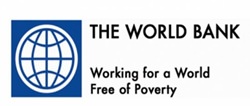BANGKOK, Oct 7 – The World Bank has reduced its Thai economic growth projection from 5 per cent to 4 per cent this year given the slower-than-expected global economic recovery and economic slowdown in China, its senior economist Kirida Bhaopichitr said today.
She said the global impacts have plunged Thailand’s exports in the first half the year to expand at only 1.2 per cent and it is predicted that export growth for the entire year would be 2.5 per cent.

Thai exports in the four remaining months should increase at least 4-5 per cent while imports will rise 6 per cent, she said, adding that domestic consumption has been slowed to only 2.5 per cent due to the completion of the government’s tax incentives for first-car buyers.
She predicted a positive trend for the Thai economy next year, saying it should grow at 4.5 per cent given signals of strengthened global economy and the government’s planned investment on mega infrastructure projects.
However, the government should be wary of delayed disbursements of the 2014 budget which will have an impact on state projects, especially water management and the Bt2 trillion infrastructure development, she said.
Higher household debts could also deter private consumption and result in less-than-targeted economic growth, she said.
Regarding US economy, Ms Kirida said the World Bank predicted that the US hiccup in its economic stimulus would lower its gross domestic product (GDP) growth by 2 per cent and the impact could be felt globally including East Asia.
If the US GDP declines by 1 per cent, it will lower East Asia’s GDP by 0.5 per cent but the World Bank could not evaluate the coming impact in case the US fails to postpone the debt ceiling deadline and pay its debt for the first time on October 17, said Ms Kirida.
She said the US should successfully meet the October 17 deadline to avoid negative impacts on confidence towards the US, which will consequently affect global confidence.
She predicted that foreign capital would flow out of Asia after the US reduces its economic stimulus through quantitative easing and the outflows could affect the bond and stock markets in the region as well as weaken the Thai currency.
The Thai economy will remain strong and Thai financial institutions will be able to cope with the capital outflows, she said.
She said Thailand will lose Bt200 billion, or 2 per cent of GDP, if the government carries on with the rice pledging scheme and two years of rice subsidies has cost the kingdom a total loss of Bt400 billion.




